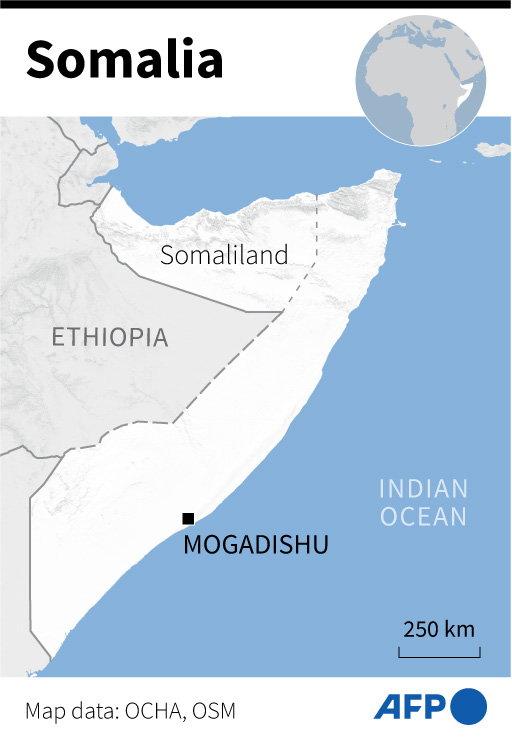The African Union on Thursday urged Ethiopia and Somalia to implement “without delay” an agreement aimed at ending tensions between the neighbours over Ethiopia’s access to the sea, calling the deal an “important act”.The two countries have been at loggerheads since landlocked Ethiopia struck a deal in January with Somalia’s breakaway region Somaliland to lease a stretch of coastline for a port and military base.In return, Somaliland — which declared independence from Somalia in 1991 in a move not recognised by Mogadishu — said Ethiopia would give it formal recognition, although this was never confirmed by Addis Ababa.Somalia branded the deal a violation of its sovereignty, setting international alarm bells ringing over the risk of renewed conflict in the volatile region.Following hours of Turkish-brokered talks, Ankara announced late Wednesday that an “historic” agreement had been reached between Somalia and Ethiopia.Turkish President Recep Tayyip Erdogan said he believed the agreement would help Ethiopia gain its long-desired access to the sea. Technical talks are set for next year. Ethiopian Prime Minister Abiy Ahmed and Somali President Hassan Sheikh Mohamud had flown into Ankara for the talks following two previous rounds that made little progress.Speaking in the Turkish capital after the agreement, Mohamud said the neighbours had “mutual interests in cooperating together”.”We belong to a region where peace and stability is first priority for our people’s lives,” he said.African Union Commission Chairman Moussa Faki Mahamat stressed the “important act” taken by the leaders to find a deal but emphasised the urgency to “implement, without delay, the relevant measures adopted”.He did not give any indication in the statement, posted on social media platform X, of what measures had been agreed.East Africa’s regional bloc IGAD (the Intergovernmental Authority on Development) also welcomed the agreement as an “important step”.It “demonstrates a commitment to resolving bilateral issues amicably”, IGAD Executive Secretary Workneh Gebeyehu said.- ‘Reliable, safe’ access – According to the text of the accord published by Turkey, the parties agreed “to put aside differences of opinion and contentious issues, and to move resolutely forward in cooperation towards common prosperity”.They agreed to work closely together on commercial arrangements and bilateral agreements that would ensure Ethiopia’s “reliable, safe and sustainable access” to the sea “under the sovereign authority of the Federal Republic of Somalia”.To that end, it said they would start technical talks no later than the end of February which would be completed “within four months”, with any differences to be dealt with “through dialogue, where necessary with Turkey’s support”.Both top US diplomat Antony Blinken and UN Secretary-General Antonio Guterres, in separate statements, looked ahead to negotiations to finalise the accord. Blinken said the agreement reaffirms “each country’s sovereignty, unity, independence, and territorial integrity”.Guterres thanked Erdogan for his role and looked forward to “a positive outcome to the process”, his spokesman Stephane Dujarric said.There was no detail in the text published by Turkey on how the agreement might impact the controversial memorandum of understanding between Somaliland and Ethiopia, which has never been made public.Ethiopian authorities did not immediately respond to AFP’s requests for comment about the future of the agreement with Somaliland.A source close to the Somaliland government said nothing had changed regarding the agreement with Ethiopia, noting: “Agreeing to work together to resolve their dispute is not the same as walking away from the MOU.”While Abiy has repeatedly insisted that his country must have coastal access, he told parliament earlier this year that Ethiopia had “no interest in getting involved in a war” over access to the sea.In response, Mogadishu has strengthened its ties with Egypt, Ethiopia’s longtime rival.Somalia expelled Ethiopia’s ambassador in April and said Ethiopian troops would be excluded from a new African Union peacekeeping force against Islamist Al-Shabaab insurgents that is due to be deployed on January 1.Ethiopia, which has the second-largest population in Africa with 120 million people, lost access to the sea when Eritrea gained independence in 1993.
